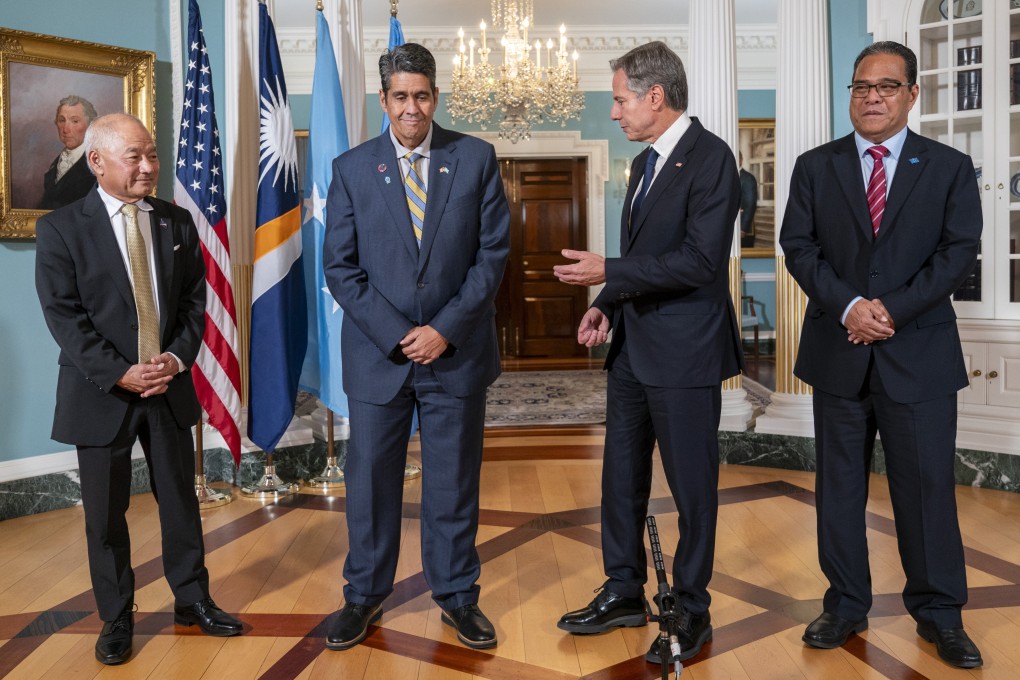Advertisement
US-China relations: how Washington’s Pacific funding crunch ‘plays right into’ Beijing’s hands
- A political impasse over US$2.3 billion of funding for three Pacific island nations is threatening to undermine US security access to the region
- The lack of urgency is causing alarm over the speed at which China may step in while Congress dawdles over a small sum of money by aid standards
Reading Time:5 minutes
Why you can trust SCMP
11

A failure in Washington to break a deadlock over US$2.3 billion for three Pacific island nations in return for exclusive US security access – including bases for missiles and radar – may open the door for China, leaders and experts have warned.
While a US$95 billion military aid package including for Ukraine and Israel was agreed last week, the relatively small change contained in a 20-year-old renewal deal called the Compact of Free Association (COFA) is yet to be signed off by the US Congress.
The COFA covers Palau, Federated States of Micronesia and the Republic of the Marshall Islands, tiny economies representing nearly 175,000 people yet with an outsize geopolitical role, thanks to their location in the northern Pacific stretching between the Philippines and Hawaii.
Advertisement
The deal, which dates back to former US President Ronald Reagan’s administration and equates to about US$100 million a year, funds education, infrastructure, disaster preparedness and climate change resilience, among other urgent needs.
Last year, the fund made up about 20 per cent of the Marshall Islands’ annual government revenue and roughly 30 per cent of Palau’s.
In exchange, Washington is granted exclusive military access to key waters with missile testing sites and bases for weapons and radar.
Advertisement
Advertisement
Select Voice
Select Speed
1.00x